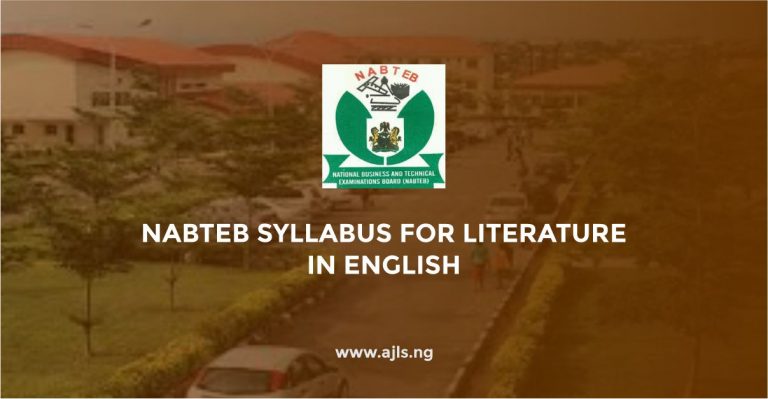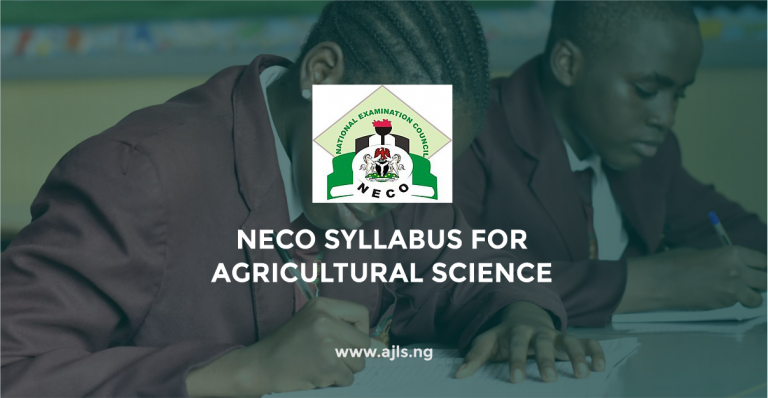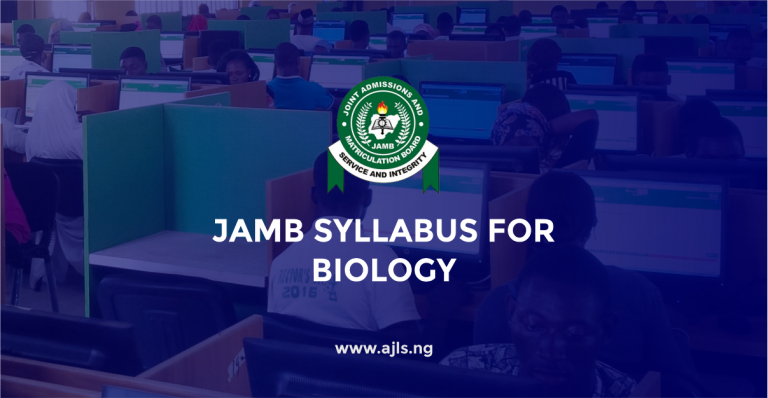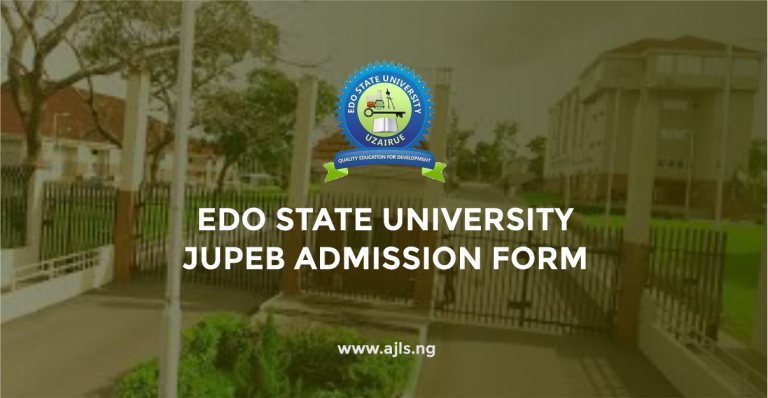JAMB Syllabus for Agricultural Science 2025
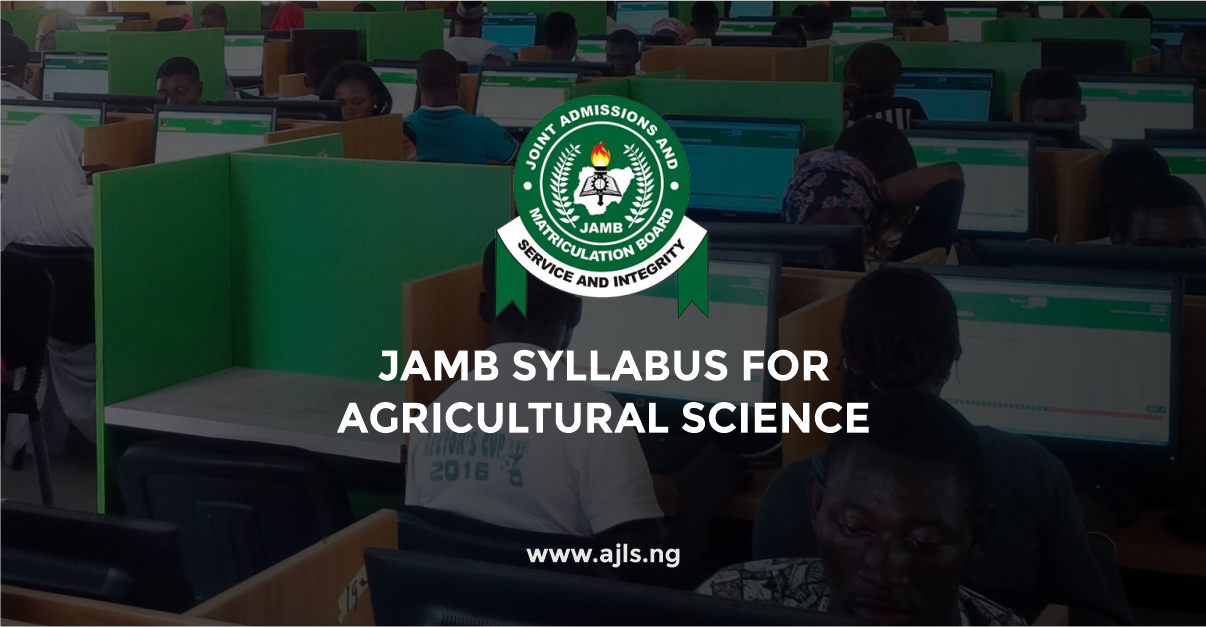
JAMB Syllabus for Agricultural Science: Are you preparing for the Joint Admissions and Matriculation Board (JAMB) exams and aiming for a degree in Agricultural Science? The journey to success in JAMB starts with knowing exactly what to study, and the JAMB syllabus for Agricultural Science is a key tool in ensuring you’re on the right track.
Agricultural Science is one of the core subjects in the JAMB exam for students pursuing courses related to agriculture, environmental sciences, and related fields. Whether you aspire to study Agriculture, Agricultural Economics, or any other related course, mastering the JAMB syllabus for Agricultural Science will set you on the path to success.
In this guide, we’ll explore everything you need to know about the JAMB Agricultural Science syllabus, from the core topics to the structure of the exam. Read On!
JAMB Syllabus for Agricultural Science 2025
The 2025/2026 JAMB syllabus for Agricultural Science is designed to provide a comprehensive understanding of the various aspects of agriculture. The JAMB syllabus for Agric 2025/2026 is available for fast download on this page. It is an essential document for 2024 jambites. Below is a breakdown of the key sections and topics that will be covered, giving you a roadmap for your studies.
SECTION A: General Agriculture
- Meaning and Scope of Agriculture:
- Importance of Agriculture
- Agricultural Ecology
- Agricultural Genetics
- Farm Inputs
- History of Agricultural Development in West Africa
- Roles of Government and NGOs in Agricultural Development
SECTION B: Agronomy
- Rocks and Soil Formation
- Soil Water and Soil Conservation
- Soil Fertility
- Land Preparation and Soil Tillage
- Plant Forms and Functions
- Growth, Development, and Reproduction
- Plant Propagation Methods
- Cropping Systems, Planting Patterns, and Plant Densities
- Crop Husbandry
- Pasture and Forage Crops
- Floriculture
- Weeds
- Crop Diseases and Pests
- Forest Management (Silviculture)
SECTION C: Animal Production
- Forms and Classification of Major Farm Animals in West Africa:
- General Terminologies in Animal Production
- Anatomy and Physiology of Farm Animals
- Reproduction in Farm Animals
- Animal Nutrition
- Livestock Management
- Animal Health
- Fisheries and Wildlife
- Bee-Keeping (Apiculture)
SECTION D: Agricultural Economics and Extension
- Factors of Agricultural Production
- Basic Economic Principles
- Labour Management
- Farm Management
- Marketing of Agricultural Produce
- Agricultural Extension
SECTION E: Agricultural Technology
- Farm Surveying and Farmstead Planning
- Simple Farm Tools
- Farm Machinery and Implements
- Mechanization and Sources of Farm Power
- Processing and Storage
- Introduction to Biotechnology
- Application of ICT in Agriculture
- Introduction to Agricultural Research and Statistics
Tap the button below to download the complete 2024 Agricultural Science syllabus to your smartphone or laptop. This syllabus offers a well-organized guide to mastering Agricultural Science, helping you prepare for the JAMB exams while providing the essential knowledge for a successful career in agriculture.
How the JAMB Agricultural Science Exam is Structured
The JAMB Agricultural Science exam consists of multiple-choice questions (MCQs), usually totaling 40 questions. These questions are spread across the major areas mentioned in the syllabus, and they test both your theoretical knowledge and practical understanding of agriculture.
Each correct answer earns you a point, and the total score will contribute to your overall JAMB result, which is crucial for university admission.
Recommended textbooks for JAMB Agricultural Science 2025
Here are some recommended textbooks for JAMB Agricultural Science that align well with the syllabus and can help deepen your understanding of the subject:
- “Agricultural Science for Senior Secondary Schools” by M.N. Olaitan and A.O. Akinmoladun
- “JAMB Agricultural Science: Past Questions and Answers” by M.A. Yusuf
- “Essential Agricultural Science for Senior Secondary Schools” by O. A. Akinmoladun
- “Agricultural Science for West African Students” by N.O. Asuquo
- “Introduction to Agricultural Science” by S.I. Orhorhoro
- “Modern Agricultural Science” by T.S. Akinleye
These textbooks provide both theoretical content and practical examples that are aligned with the JAMB syllabus. They also include exercises and past questions to enhance your understanding and exam preparedness.
Tips for Studying the JAMB Agricultural Science Syllabus
- Stick to the Syllabus: The syllabus serves as your guide throughout your studies. It helps you ensure that you’re covering all the essential topics and staying focused on the areas most important for the exam.
- Utilize Recommended Textbooks: JAMB provides a list of recommended textbooks for each subject. Make sure to use these texts, as they are directly aligned with the syllabus and will enhance your understanding of the material.
- Work Through Past Questions: One of the most effective ways to prepare is by practicing past exam questions. This allows you to familiarize yourself with the exam format and question types, while also helping you develop efficient time management skills for the actual exam.
- Make Use of Study Groups: Studying with others can provide different perspectives on difficult topics and help reinforce what you’ve learned. Group study sessions also allow for discussion of tricky questions and concepts.
- Create a Study Plan: Time management is key to preparing for the JAMB exam. Design a study plan that divides the syllabus into manageable sections, giving you enough time to review each topic thoroughly before the exam date.
We hope this article is informative enough. Always revise practice and master the JAMB Agricultural Science syllabus 2025. Continuously evaluating your progress through textbooks, past questions, and mock exams helps you identify strengths and areas that need more attention, ensuring thorough preparation. Wishing you all the best!
Frequently Asked Questions (FAQs)
What topics are covered in the syllabus?
Topics include Crop Production, Animal Husbandry, Soil Science, and Agricultural Economics.
Is practical knowledge required?
Yes, candidates should be familiar with tools and farming techniques.
What are key areas in Animal Husbandry?
Focus on livestock breeds, diseases, and feeding methods.
Are diagrams important?
Yes, diagrams like soil profiles and farm tools are essential.
How many questions are set from Agriculture in JAMB?
Usually 50 questions are included in the exam.
Where can I download the full syllabus?
It is available on the official JAMB portal.

